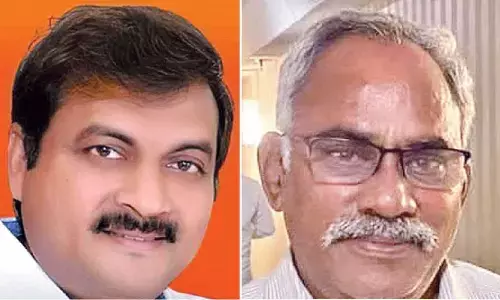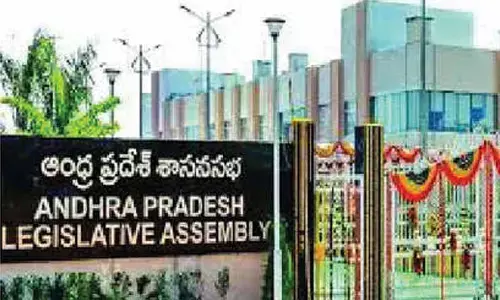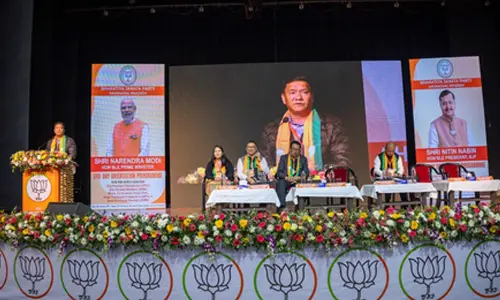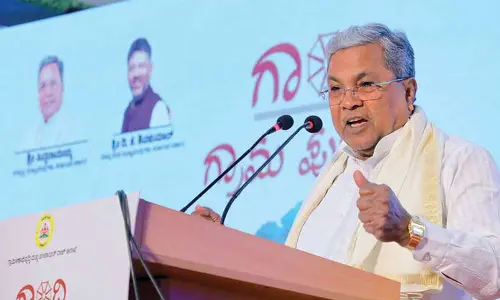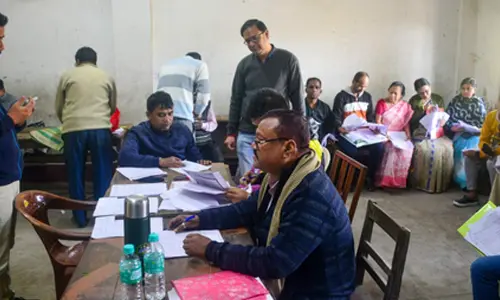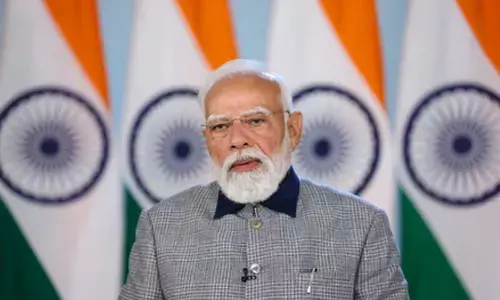Indo-US friendship: Modi seals it for next generation
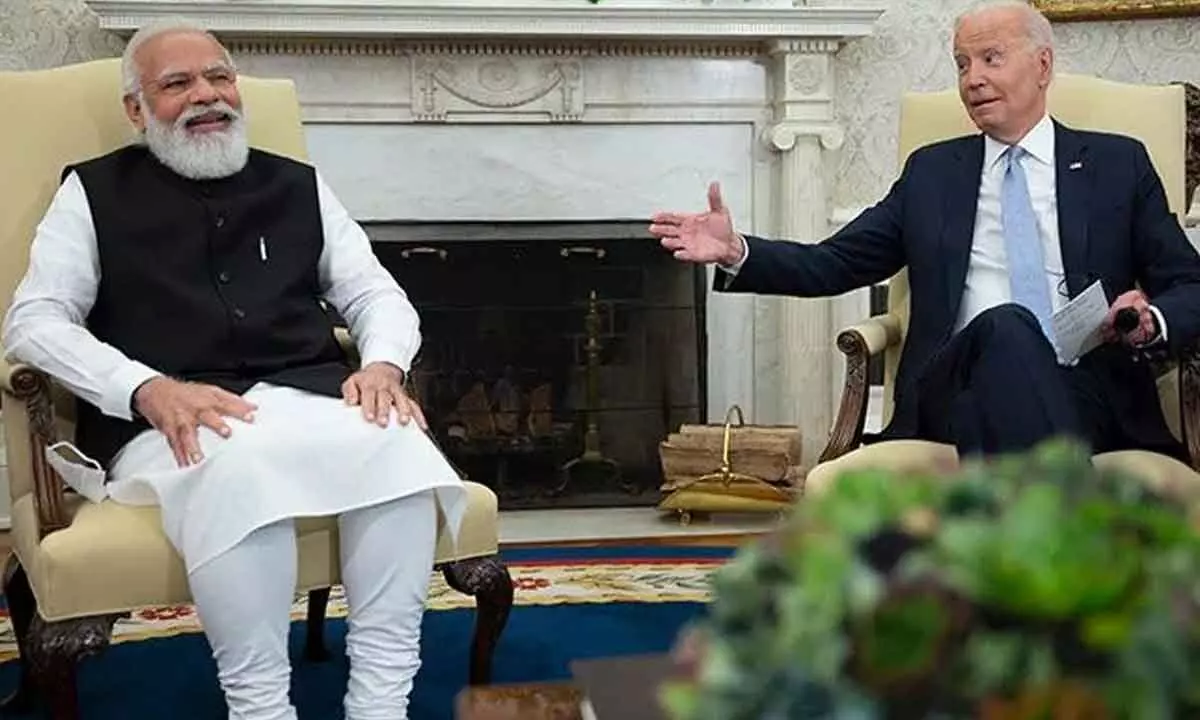
The grand reception accorded to Prime Minister Narendra Modi in the US by President Joe Biden and First Lady Jill Biden on June 22 at the White House - to which a large number of US nationals of Indian origin were invited - demonstrated three new aspects of the US-India friendship.
These aspects are: the two largest democracies are set to lead the democratic world in facing both ‘challenges and opportunities’ in the times ahead, the Americans of Indian origin are bringing pride to both nations, and the Indo-US relationship now embraces all aspects of defence and security.
These are clearly the new benchmarks set to define what looks like an irreversible friendship between the two countries.
It is indeed remarkable that there are no conceivable negatives about this relationship notwithstanding India’s balanced approach to the Ukraine-Russia military conflict and a strong lobby in the US questioning the alleged erosion of freedom of expression in India under the Modi regime.
In their opening remarks, both Biden and Modi referred to the democratic base of the Constitution of the two countries rooted in the words ‘We the people’ and spoke of their shared commitment to world peace and advance of democratic values. International relations in today’s geopolitics are determined by both security and economic concerns of the nations but the geo-strategic dimensions had the overriding importance - significantly the National Security Advisors of India and the US, Ajit Doval and Jake Sullivan, were the only other invitees to the private dinner and musical evening that President Biden hosted for the Indian Prime Minster at the White House on the first night of the visit itself.
Prime Minister Modi’s comprehensive, informative and powerful address at the US Congress was undoubtedly the best presentation of India’s progress in recent years, its civilisational strength and its vision of a peaceful ‘one world’. He called for a new world order- post-Covid- marked by a seamless Indo-US cooperation for economic growth, security and environmental sustainability.
His commitment to India’s national interests stood out as he marshalled the facts of India’s advance in digitalisation, the success of ‘direct transfers’ to the poor and the mutuality of gains that would result for both the countries from American investments in India.
Modi’s emphasis on India speaking with ‘one voice’ despite its vast diversity in terms of language, customs and ways of worship was an effective counter to those who had been building a narrative of India’s internal ‘divisiveness’.
On important geopolitical developments, the Prime Minister was characteristically upfront as he forcefully upheld the right of all stakeholders to demand ‘an open rules-based order’ in the Indo-Pacific and oppose any aggression and encroachment there, reiterated in the context of Ukraine-Russia military confrontation, that ‘this was not the era of war’ and called for peaceful negations to end the ‘human misery’ resulting from the conflict and made strong advocacy for full membership for African Union in the G20.
On China, Prime Minister Modi said that dark clouds of ‘coercion and confrontation’ were looming large over the Indo-Pacific and left no one in doubt that India was fully committed to Quad for protecting the freedom of the region. All of this secured a complete convergence of the stand of the US and India against China as the common adversary - India’s unlimited cooperation with the US in areas across the spectrum - from space to ocean - gives a message to China that any aggression in the Indian Ocean would be effectively put down.
What was implicit in India’s approach to Russia - and this seems to have been grasped by the US-led West finally - was that nothing should be done to irreversibly push Putin into the Chinese camp as this would not be in the strategic interest of either the US or India.
Prime Minister Modi put the development agenda on top by highlighting the need for rebuilding supply chains disrupted by Covid and the Ukraine-Russia conflict and demonstrated his political will in solving problems without giving in to challenges.
It would be unfair to suggest that Prime Minister Modi remained engaged with the world outside and did not think enough of solving these domestic issues. This visit to the US was as much about geopolitical strategies as it was for taking India to a new high in terms of economic growth and the welfare of the people.
The joint statement issued at the end of Prime Minister Modi’s epoch-making visit to the US specifically touched on different spheres of Indo-US cooperation in the future.
Prime Minister Modi and President Biden acknowledged that the statement represented the most expansive and comprehensive vision for progress ‘in the history of our bilateral relationship’.
The statement, among other things, announced that India and the US would take specific steps towards developing bilateral cooperation for strengthening economic relationships including trade ties. The two leaders reaffirmed that the Indo-Pacific Economic Framework (IPEF) is an important pillar of collective efforts to build resilience in supply chains, clean energy, effective tax administration and capacity-building measures. Apart from propelling global growth, the two countries detailed the measures required for a deepening strategic convergence. President Biden welcomed Prime Minister Modi’s Lifestyle for Environment initiative (LiFE) as a successful national model and resolved to work together with him to implement the G20 High-Level Principles on Lifestyles for Sustainable Development.
The statement made out that the Quad to be hosted in India in 2024, would be an opportunity for consolidating cooperation for an open and secure Indo- Pacific by working in partnership with regional platforms like the Indian Ocean Rim Association, Indo-Pacific Oceans Initiative and ASEAN.
India has thus built a geopolitical counter to deal with any Chinese aggressiveness off the Indian Ocean through a partnership with the US.
The US visit has given a transformational lift to India as a world player in both global growth and security.
The most important part of the joint statement from the point of view of India’s strategic and national security concerns is the clear denunciation of global terrorism and violent extremism in all its forms and manifestations, by both US and India. Demanding concerted action against all UN-listed terror groups including Al Qaeda, ISIS, LeT, JeM and Hizbul Mujahideen, the two leaders condemned cross-border terrorism and called on Pakistan to take immediate action to ensure that no territory under its control was used for launching terror action.
President Biden joined the Indian Prime Minister in demanding strong action against those behind 26/11 and the attack on the Pathankot airbase in January 2016.
The visit of Prime Minister Modi to the US has proved this - the stand clearly shared by him with President Biden on the threat of Islamic radicalisation was extremely important. Prime Minister Modi’s visit to Egypt on his return has met a strategic requirement of India in dealing with this threat. Egypt still carrying the legacy of the Shiite Fatimid empire practices moderate Islam of the kind that had facilitated the advent of Sufism. Egypt, Saudi Arabia and UAE with their new equation with Israel in I2U2, are the nodal points in the Muslim world that Prime Minister Modi on the advice of the NSA is tackling to the great advantage of India.
(The writer is a former Director of the Intelligence Bureau. Views expressed are personal)








